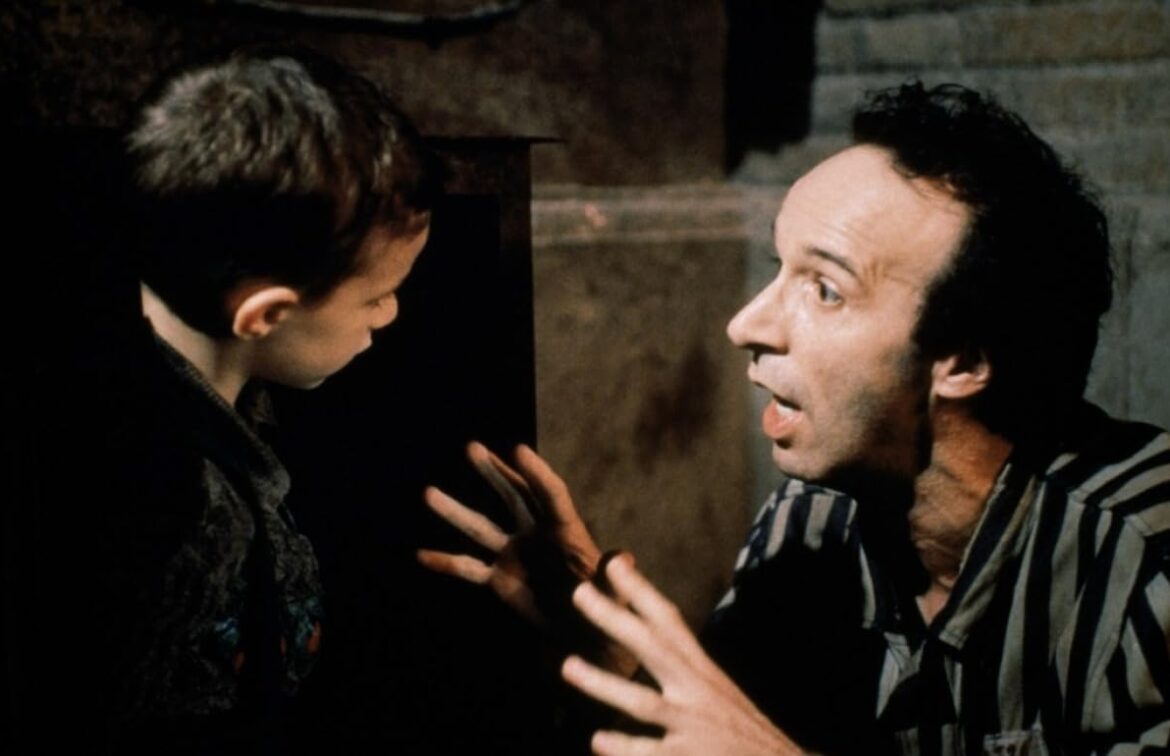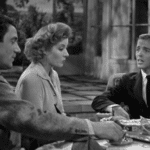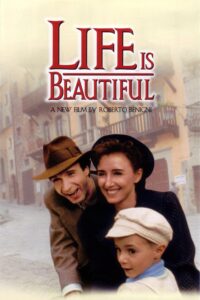
Life Is Beautiful, which came out in the U.S. in 1998 to much acclaim, follows the story of a hapless, young Jewis man named Guido Orefice, played by the director and co-writer himself Roberto Benigni, who lives in Italy in the early days of WWII. Nazism is present around the edges of his life; however, it hasn’t impacted Guido’s life as yet, and he goes around living life as if he’s in a farce of his own. Right off this tone is set as Guido’s opening scene involves him crashing a Nazi parade in a car whose brakes are broken, and as he attempts to wave them away his Nazi-like hand warning convinces them he is who they are to see. This leaves Guido confused, and the actual Nazi official, greeted with a far less enthusiastic greeting, likewise perplexed.
Very early on this slapstick tone is likely take it or leave it for many viewers, as Guido comes off in the first portion of the film in particular more like a Mr. Bean caricature, or a classic clown. He fumbles his way through life, seemingly unaware of all else, and thrusts himself at the center of every situation with little disregard. Even this is a more generous reading perhaps especially when considering his attempts at “romancing” a young lady named Dora, played by Benigni’s real life wife, involves significantly more chase than charm on Guido’s part and would be welcomed by few I expect in reality. Despite Guido’s rapscallion tendencies the audience knows what will happen next, and indeed Dora and Guido make it as a couple.
Understandably with all this negativity thus far you may expect a scathing review to follow; however, here’s where I think the movie pivots and becomes a film worthy of regard, and perhaps the reason why it was nominated for so many Oscars, including Benigni’s own Best Actor Win. For at this point, after a time jump to late in the war, Guido, Dora, and their son art starting to see Nazism’s oppressiveness is at their doorstep, and after several years without catching the Nazi’s attention the family ends up at what is ostensibly, though never stated, Auschwitz.
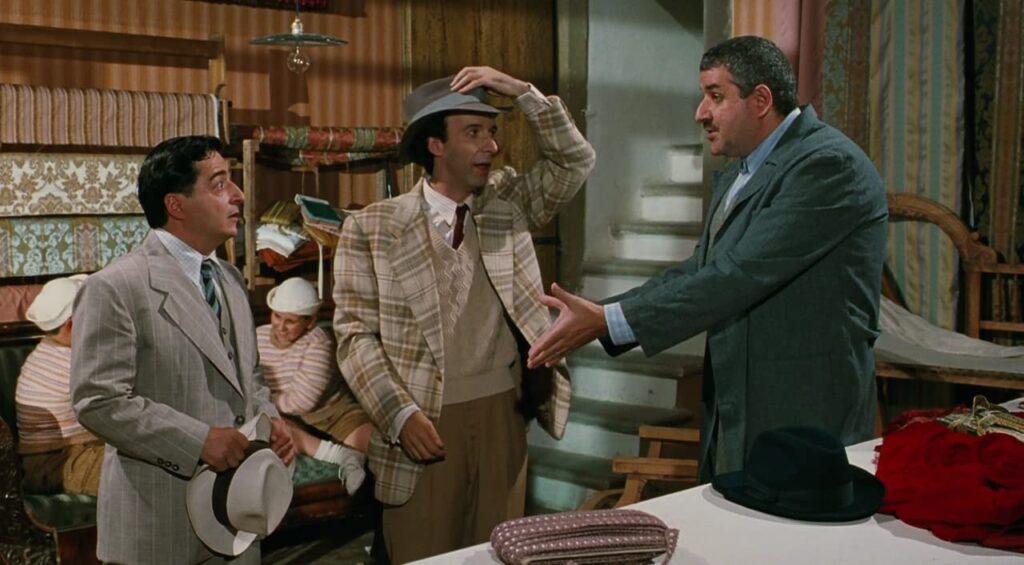
Here perhaps the few seeds planted of note from the first part of the film bear fruit, as we see that Guido’s able to turn his comedic foibles into armor for his family. The movie pivots as well, where as Guido’s attempts at humor were farcical in the first part, they are now in a much darker film as the family fights for survival. Despite some truly incredible, and unlikely scenes, which require quite a bit of suspension of disbelief, the film becomes a lovely testament to family and to what one must do in the darkest times to survive.
Nicola Piovani’s score, also nominated for an Academy Award, does a wonderful job of setting the film’s tone in all parts, as it’s light and moodier at the start, with an added air of foreboding even as Guido’s whimsy continues now in a defensive posture. This and the setting, especially the contrast of early war Italy and the Holocaust camp the family is now in, also further solidify the pivot.
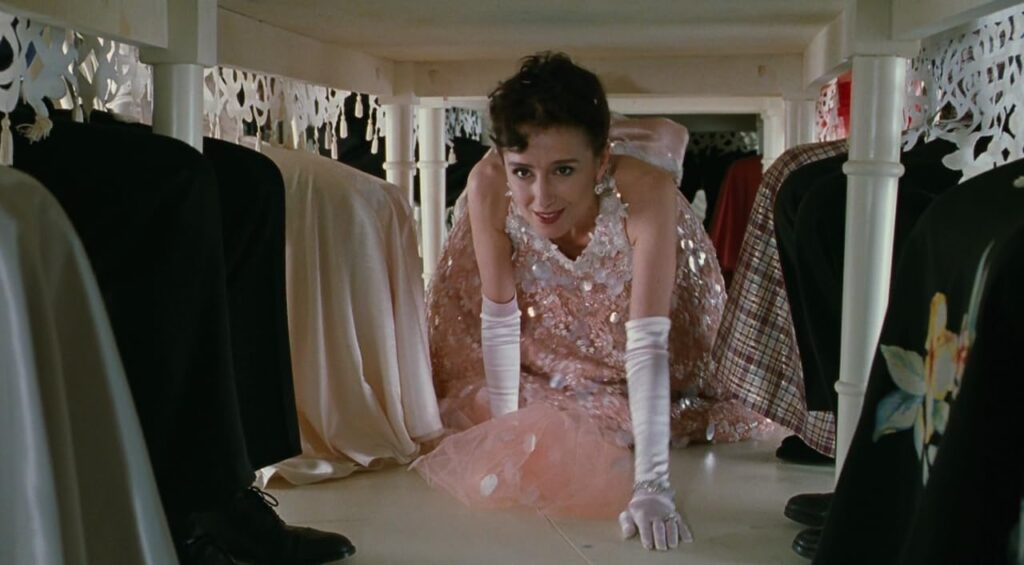
Ultimately Life Is Beautiful is a flawed yet still worthy film to watch. Though Benigni’s clown-like entrance could use some significant time on the chopping block, what ultimately stays with you is these later moments in the film when the love, unseen in the courtship but demonstrated here in full, shines on both in Guido’s affections for his wife and his son and his wife’s affections for the family as well. Though the contrasting tone of the horrors of the Holocaust – portrayed quite starkly I might add – and farce may not be for everyone, I think many viewers will come away as emotional and moved by the film as I did even still.
